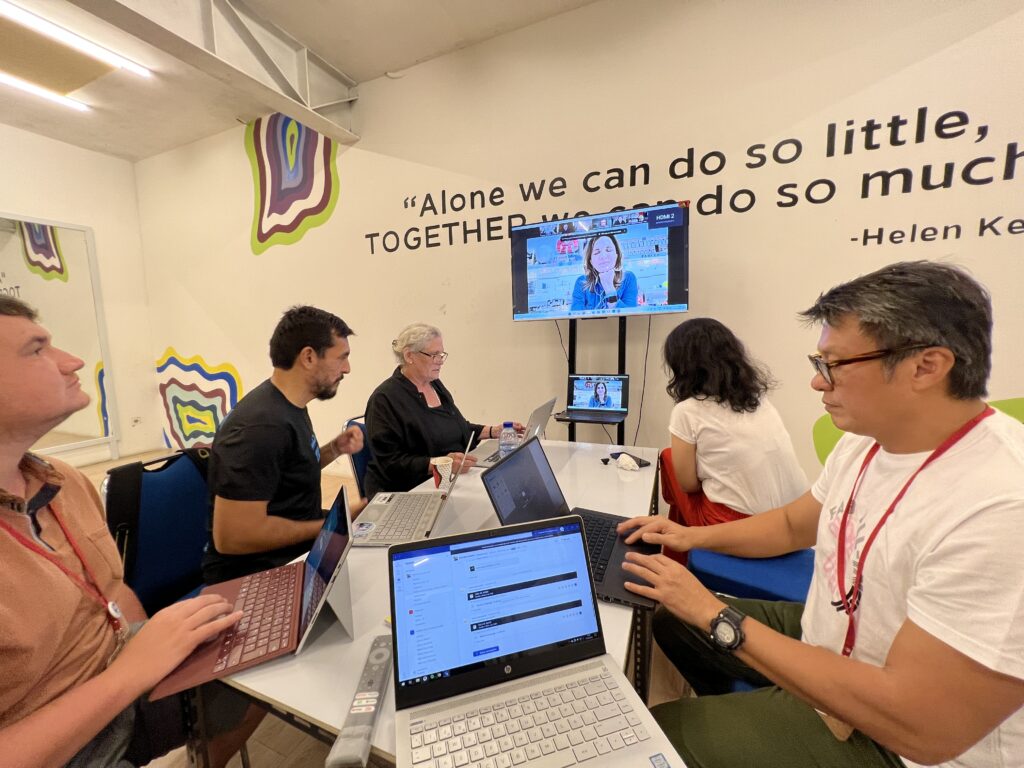
Ollactivate: Digging the roots for blooming social entrepreneurship in Guanajuato
Authors: Maximino Matus Ruiz, México and Jan Peuckert, Germany
Ollactivate is a synthetic capillary roots solution and natural dry plant system designed to empower social entrepreneurship in Guanajuato, México. Ollactivate was developed in León, Guanajuato, by five fabbers from three different continents and the local community of Parque de la Olla. With the support of IDEA, the project aims to promote water conservation and social entrepreneurship in the city’s outskirts.
Designing a sustainable rainwater harvesting system
The Challenge team worked closely with the local community of a public eco-park in the outskirts of the city of León to address two major challenges: ensuring irrigation during the dry season and developing income-generating activities. With the natural water flow to the park blocked by nearby construction, the team explored alternative methods for water collection and storage. As herb beds were already being cultivated in the park, the idea of processing and selling herbal products emerged as a promising solution.
After 3 days of field research and rich collective discussion, the team decided to create a sustainable rainwater harvesting system. The system makes use of sloped roofs already existing in the park to catch the rainwater. Using cheap and easily available materials like water canisters and PVC pipes, a system was designed that collects, filters, and stores rainwater underground. It uses wicking beds to keep the soil moist without the need for water pumps, making the system autonomous. The solution mimics natural roots, allowing water to flow from the storage to the plants through capillary action during dry periods.
Creating Revenue Opportunities
To help the community generate income, the team developed product ideas from the harvested herbs. After considering various options, such as oils and creams, the choice was to produce herbal infusions as the quickest and simplest solution. A solar dryer was designed to process the herbs. The design was refined with input from local mentors and a wooden prototype was built, using laser-cut MDF parts, transparent plastic, a mosquito net and aluminium foil.
Figure 1: water storage and synthetic roots
Figure 2: solar plant dryer prototype
Figure 3: brand and product ideas
Conclusion
The project not only addresses water shortages but also helps the community by providing a source of income through the processing and sale of herbal products like infusions. By working together, innovators and communities developed simple, low-cost solutions that can be easily maintained and replicated.


